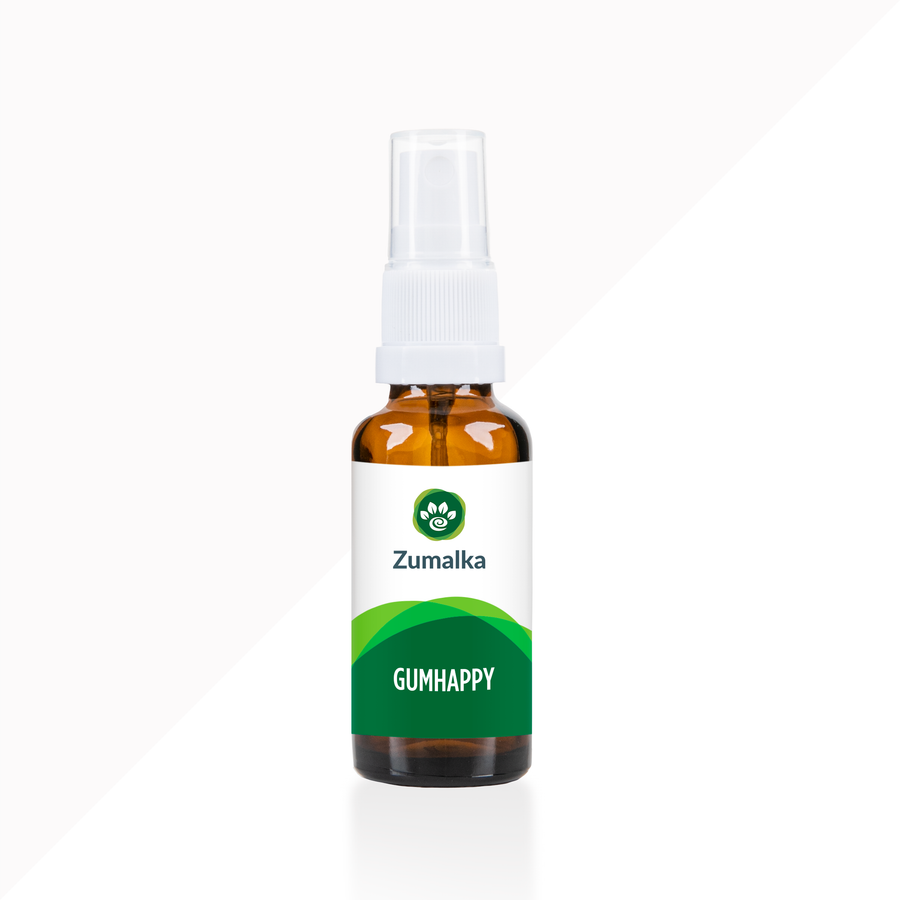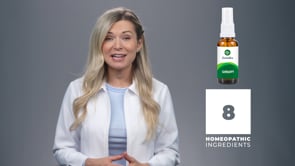Feline Stomatitis: Vet Verified Symptoms, Causes, and Treatment Options
Is your furry friend suffering from feline stomatitis? Stomatitis is a common condition in cats that can cause severe pain, oral bleeding, and even weight loss.
But don’t worry—this uncomfortable issue is manageable! Let’s explore what stomatitis in cats entails, along with some helpful tips on how you can treat it naturally at home.
A Vet Explains the Basics of Feline Stomatitis

Feline stomatitis is a painful condition marked by persistent inflammation in a cat's mouth, often beginning in the periodontium, which includes the gums and surrounding tissues.
As the condition progresses, it can spread to the tongue (glossitis) and gums (gingivitis), causing widespread oral inflammation. In simple terms, feline stomatitis is a severe form of periodontal disease that affects the entire mouth—gums, tongue, and surrounding tissues.
What Causes Stomatitis in Cats?
So, your vet just told you that your cat has stomatitis—what could have caused it? Unfortunately, the answer isn’t straightforward.
We don’t fully understand the exact mechanism behind severe stomatitis in cats. However, we do know it’s a multifactorial condition, meaning there’s more than one contributing factor!
Periodontal disease and bacterial infection are NOT just the only triggers
The oral cavity is constantly exposed to a variety of bacteria.
In healthy cats, the immune system can usually handle most of these infectious agents. However, one potential cause of stomatitis is that it may be immune-mediated, meaning the cat's immune response reacts abnormally, triggering inflammation.
Various studies suggest that viruses play a significant role in feline stomatitis. Cats infected with Feline Immunodeficiency Virus (FIV), Feline Leukemia Virus (FeLV), or Feline Calicivirus are more prone to developing this condition, a trend often observed by veterinarians.
Clinical Signs of Stomatitis in Cats

Do you think your feline friend might have stomatitis? This condition is most commonly seen in middle-aged to older cats and typically leads to the following symptoms:
- Oral pain – Cats may struggle to eat or paw at their mouths due to discomfort.
- Halitosis – Bad breath is common with both mild and severe stomatitis.
- Excessive drooling – Stomatitis is painful, and affected cats often drool more than usual.
- Oral bleeding – This can occur as a result of severe inflammation in the mouth.
- Weight loss and dehydration – Chronic pain from stomatitis can lead to reduced eating and drinking, causing noticeable weight loss and dehydration.
These symptoms can also occur with an inflammatory dental disease or after a tooth extraction. That’s why prompt medical management is essential if you notice any of these clinical signs.
Treating Oral Inflammation and Dental Disease in Cats: It's No Easy Task!
So you're probably now wondering, how do veterinarians treat such a severe form of periodontal disease in cats? Well, let's take a look.
Expect a thorough checking (and possible extraction) of your cat's teeth.
Your veterinary dentist will likely recommend a thorough scale and polish procedure to remove plaque and tartar, helping to prevent bacterial infections. Oral surgery is also commonly advised, often involving the extraction of affected teeth, and sometimes even healthy ones.
In severe cases, a full mouth extraction may be necessary to alleviate extreme pain caused by advanced gum disease.
During the procedure, your veterinarian will carefully examine your cat’s mouth for signs of pain, assess the severity of caudal stomatitis (inflammation at the back of the mouth), and evaluate the overall level of inflammation.
Dental X-rays may be taken to assess the condition of the teeth and bone beneath the gum line, typically to detect signs of tooth resorption.
Cyclosporine can help stimulate a positive response in many cats.
Feline stomatitis often results from an exaggerated immune response to plaque bacteria. To manage this reaction, regular use of oral immunosuppressive medications can be effective.
One commonly used option is Cyclosporine, known for its immunomodulatory properties, which help reduce stomatitis symptoms.
Bovine Lactoferrin: a holistic solution for managing feline oral inflammation.
Bovine Lactoferrin, an all-natural protein from colostrum, acts as an immune stimulant, balancing the immune system and boosting white blood cell production. It is often mixed with milk and applied to a cat’s gums.
Veterinarians use lactoferrin to reduce oral inflammation, particularly in feline stomatitis, by preventing plaque bacteria from attaching to the mouth, improving both oral health and immune function.
5 Tips on Keeping Your Cats' Teeth Healthy at Home

Feline stomatitis can be a frustrating disease, but the good news is that there are simple at-home strategies to help manage it. Let’s dive into those next!
- Brush your cat's teeth! The most important advice I can give is to brush your cat's teeth regularly—ideally once a day—to reduce plaque and tartar buildup. Tooth brushing and routine dental care are the first steps to preventing feline chronic gingivostomatitis (and annoying bad breath).
- Invest in antibacterial dental wipes. Choose pet-friendly dental gels or wipes with chlorhexidine, an antibacterial agent that kills surface bacteria in the mouth. These products clean more than just the gingiva and can help prevent future dental extractions.
- Consider dental diets. Feline dental diets, such as those from Royal Canin and Hill’s, are designed to minimize plaque and tartar buildup, making them a great addition to your cat’s oral care routine.
- Schedule regular dental checkups! Proactively manage your cat's stomatitis by scheduling annual oral health assessments with your veterinarian. Early detection helps address inflammation and pain before it worsens.
- Don't be afraid to explore homeopathy. Zumalka offers a range of powerful homeopathic supplements to strengthen your cat’s immune system. One standout is PIPTOPET, crafted with Fomitopsis betulina, a potent fungus known for its antimicrobial and immune-boosting properties.
SILVERPET is Designed to Help Deal With Cats Gingivitis
Stomatitis in pets can cause significant discomfort, leading to inflamed gums and mouth pain. Recommended by Zumalka homeopaths, SILVERPET is a natural, colloidal silver-based product that promotes gum health and strengthens the immune system.
By targeting bacteria and reducing mouth infections, this premium natural product provides gentle yet powerful relief for pets with oral discomfort, helping them feel better naturally.







Great tips! I never knew how effective natural treatments could be for my cat’s stomatitis. Can’t wait to see the improvement!
Hi Maj, We’re so glad that you reached out to us about your cat, and we hope that the remedies recommended by our Homeopath in our email to you can give him some relief!
Hi! We got our first cat when she was 6 years old, now she’s 8. Long story short she was diagnosed with stomatitis and later on with hyperthyroidism. I stopped giving her the medicine for hyperthyroidism, she’s eating well and drink water regularly. About her stomatitis, her vet told us that it’s not transferrable or contagious to other cats as of now I have total of 3 including her ( 1 year and 2 months (female) and the other is just turned 3 months(male), I have read in some articles that it can be transferrable? Is it true?
I am giving them wet food twice a day, morning and night. She still has blisters in her mouth, I’m giving her a maxi guard as per her vet told me to use it to her and brush her/their teeth twice or once a week. I will definitely try and buy the cranberry toothpaste that you recommend.
Going to the vet is so expensive per visit.
My questions are, is her stomatitis tranferrable? is there any vitamins that you can recommend for my 8 year old cat and for my 2 other cats to boos their immune system? Thanks a lot.
Hi Kristen, Thank you for your comment. We will be answering you via email so we can help you target your cats need in the best natural way possible.
We look forward to working with you.
-Zumalka
My cat was diagnosed with stomatitis and it was pretty bad. I opted for a full mouth extraction to be done with this once and for all. $3400. Everything was removed except the tiny front teeth. Post-op there was a topical main med given to him (Zorbium) that burned his skin and he lost his hair in that spot. Nobody even apologized, I then had to give him MORE meds to combat that issue and pay for that vet bill!!!! Now that he is fully healed, the redness is back. On the tiny front teeth and in the back of his throat. He is in pain. The vet keeps giving me prednisone and other steroid/antibiotics and they’re first of all, horrible to try to get into him, but also giving him awful side effects and he’s absolutely miserable. I did purchase gumhappy and i add it to the water bowl. Not sure if it helps. Maybe i need to put it in his food? Or maybe there is another product I could try in conjunction? I’m done with the stupid pharmaceutical industry. I want to sue them basically, that’s how angry I am. I’m happy to experiment with natural tinctures like this, or even a more natural diet to help my cat. Any info is appreciated.
Leave a comment